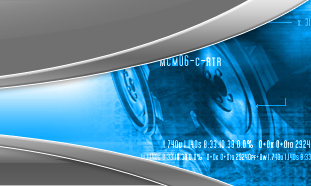|
Career Management Strategies ~ Career Development for Individuals
Based on CAREEERSmart™ Developed and Produced by MasteryWorks, Inc.
Professionals who have a clear picture of the future achieve valued outcomes and results. Empowered people in the workforce today use tasks and projects to develop
skills and build competencies. They use a mental model that links today's learning with tomorrow's customers and organizational strategies for success. Career Management
Strategies enables individuals to:
- FOCUS ON THE CHANGING WORLD OF WORK ~ Learn to understand and harness the changes happening in your industry, profession, organization and
work and how to integrate this information into career planning and goal setting.
- BUILD AN ACCURATE SELF ASSESSMENT ~ Identify important factors in career and life planning such as skills, interests and values that you
bring to the marketplace. Assess and understand the strengths that will be the foundation of your success.
- DETERMINE A PRECISE PICTURE OF YOUR REPUTATION ~ Get a realistic view of yourself by asking for specific, relevant and appropriate
feedback from other people who know your work. Learn the importance of reputation and how to manage it.
- LINK YOUR CAREER GOALS TO THE GOALS OF YOUR ORGANIZATION ~ Determine the mission and strategic direction of your organization. Learn how
to speculate about future trends and what you will need to do to prepare yourself.
- INCREASE YOUR VALUE TO THE ORGANIZATION WHILE SHARPENING YOUR MOST VALUABLE SKILLS AND COMPETENCIES ~ Identify your realistic options,
establish developmental goals and choose change career management strategies that keep you competitive.
- LEARN HOW TO ACHIEVE YOUR GOALS ~ Create an effective action plan for reaching your potential, identify the support you need to implement
your plans and gain confidence to initiate relationships with people who can influence your future.
OUTCOMES
RESULTS and BENEFITS to the ORGANIZATION:
- Employees improve their value to the business and develop a stronger professional commitment.
- People become grounded in the reality of others’ perceptions with more open and honest feedback.
- Individual goals and objectives better matched with the organization's purpose and strategy.
- Individuals develop a more clear sense of purpose, ownership and direction in their professional choices.
- Required talent tends to remain in an organization with mutual benefits and futures.
- People take more responsibility for personal development that supports specific business initiatives.
. . . with INCREASES in:
COMMITMENT ~ COMPETENCE ~ CONGRUENCE ~ COST EFFECTIVENESS
Top of Page WHEN TO USE CAREER MANAGEMENT STRATEGIES
Consider using Strategic Career Development when:
The Business
Needs to . . . |
- Reduce turnover and retain required talent.
|
| |
- Motivate and develop employees who have reached a plateau.
|
| |
- Help the workforce adapt to changes in size, structure or systems.
|
| |
- Communicate new competencies required for success.
|
| |
- Maintain succession planning while career paths are vague.
|
| |
- Expand information on career opportunities.
|
The Workforce
Needs to . . . |
- Develop a sense of career freedom, yet maintain loyalty and commitment.
|
| |
- Feel a sense of control and responsibility for their own future.
|
| |
- Increase awareness and master skills of effective career development.
|
Top of Page
PROGRAM OVERVIEW
PERSON: “Who Am I and How Am I Unique?”
Identify important considerations in career and life planning such as skills, talents, preferences, interests and values.
PERSPECTIVES: “What Are my Capabilities and How Do Others See Me?”
Obtain feedback and information to establish accurate perceptions of reputation and capabilities as seen by others.
PLACE: “What Is The World Of Work Like and How Is it Changing?”
Learn about trends of professions, the organization and the industry, and their influence on career decision-making.
POSSIBILITIES: “What Are My Aspirations and How Can I Align With My Organization?”
Discover available options and select alternatives considering personal preferences and the reality of the workplace.
PLAN: “How Can I Accelerate My Learning and Achieve My Goals?”
Develop strategies to obtain support, engage others in the process, & discuss plans to achieve personal & career objectives.
Top of Page
|





